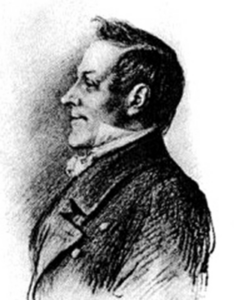Dissolution
(Poet's title: Auflösung)
Set by Schubert:
D 807
[March 1824]
Verbirg dich, Sonne,
Denn die Gluten der Wonne
Versengen mein Gebein;
Verstummet, Töne,
Frühlings-Schöne,
Flüchte dich und lass mich allein!
Quillen doch aus allen Falten
Meiner Seele liebliche Gewalten;
Die mich umschlingen,
Himmlisch singen –
Geh unter Welt, und störe
Nimmer die süßen ätherischen Chöre!
Sun, hide yourself,
For the glowing fires of ecstasy
Are scorching my body;
Musical notes, be silent,
Spring beauty
Fly off, and leave me alone!
For welling up out of all the recesses
Of my soul come welcome forces
Which embrace me,
They sing in a heavenly voice –
World, collapse, and never disturb
The sweet ethereal choir again!
All translations into English that appear on this website, unless otherwise stated, are by Malcolm Wren. You are free to use them on condition that you acknowledge Malcolm Wren as the translator and schubertsong.uk as the source. Unless otherwise stated, the comments and essays that appear after the texts and translations are by Malcolm Wren and are © Copyright.
☙
Themes and images in this text:
Arms and embracing Being solitary, alone and lonely Ether Fire Fleeing Heavenly choir Hiding Noise and silence Soul Spring (season) The sun Sweetness
Everything comes together; everything falls apart. Things are resolved; things dissolve. This is the paradox inherent in the word ‘Auflösung’, which could be resolution or dissolution, fulfilment or destruction. In a musical context the term refers to the resolution of harmonies to create satisfying cadences. In chemistry material ‘dissolves’. Riddles and mysteries are ‘solved’ or ‘resolved’. Crowds ‘disperse’, engagements are ‘broken off’, companies are ‘disbanded’, dominions and powers ‘disintegrate’, empires ‘fall’. And yet, for Mayrhofer, this is a ‘consummation devoutly to be wish’d’[1].
He begins with immolation. The poet feels his body sizzling with fires that will outblaze the sun itself. He is entering into a state in which external beauty (in the form of music or the power of nature at springtime) has no more role to play, such is the character of the apotheosis that is taking place. Everything is collapsing[2] in on itself and on him.
Or rather, powers are welling up from within him that are beginning to overwhelm him. Left alone, he is in the presence of multitudes. As music falls silent, the choirs of heaven resound. Immolation and cataclysm have revealed themselves to be orgasm. It all wells up from the hidden recesses within him and releases him into the ether. Some traditions call an orgasm a ‘little death’, but there is nothing ‘little’ about the death being welcomed and invoked in this poem. It is as if the riddle of the universe itself is being resolved in this ultimate dissolution.
[1] Shakespeare, Hamlet Act III Scene 1
[2] The poet’s command to the world to ‘collapse’ (Geh’ unter, Welt) recalls Mayrhofer’s climactic use of the word ‘Untergang’ (collapse or downfall) at the end of ‘Auf der Donau‘ (Schubert’s D 553).
☙
Original Spelling Auflösung Verbirg dich, Sonne, Denn die Gluthen der Wonne Versengen mein Gebein; Verstummet Töne, Frühlings Schöne Flüchte dich, und laß mich allein! Quillen doch aus allen Falten Meiner Seele liebliche Gewalten; Die mich umschlingen, Himmlisch singen - Geh' unter Welt, und störe Nimmer die süßen ätherischen Chöre!
Confirmed by Peter Rastl with Gedichte von Johann Mayrhofer. Wien. Bey Friedrich Volke. 1824, page 122.
To see an early edition of the text, go to page 122 [136 von 212] here: http://digital.onb.ac.at/OnbViewer/viewer.faces?doc=ABO_%2BZ177450902


